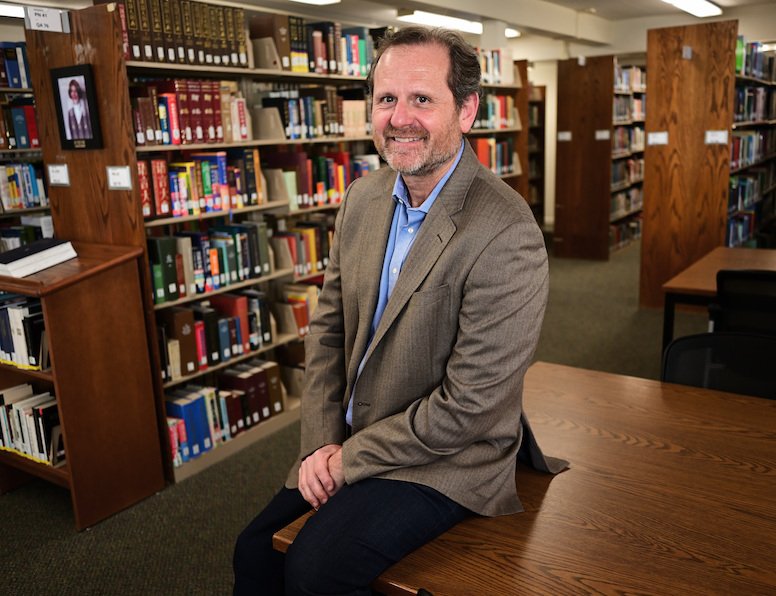
It has been a spring of milestones for Scott Pulizzi MAIPS ’97: The longtime visiting professor was appointed to the regular faculty, named program chair for the International Policy and Development, MPA, and International Trade programs, and honored with the Institute’s Faculty Excellence Award for 2022–23.
“The Faculty Excellence Award selection committee felt that Scott struck a great balance between different teaching strategies and demonstrated a deep commitment to student-centered learning,” said Vice President for Academic Affairs Jeff Dayton-Johnson.
Highlighting Pulizzi’s extensive preparation for each class session and skillful use of learning technology, one selection committee member noted that “the students are front and center, asking great questions and engaging with each other. Everyone seemed relaxed and joyful.” Another said “He cares so much about his students. He did a great job involving students online and in person. It was seamless.”
The Zone of Proximal Development
Pulizzi said his career in teaching started with his very first job as a 13-year-old teaching kids to swim. He remembers telling kids to swim towards him and then just backing away slowly. They’d end up swimming the full length of the pool without realizing it.
“That’s the rush I keep looking for,” said Pulizzi. “I love just being outside of the zone of comfort for the students and bringing it in closer and closer, and then saying, ‘Look what you did!’ at the end of the semester.”
Professor Pulizzi will receive a cash award and be the faculty speaker at the Institute’s Winter 2023 Commencement ceremony in December. Dayton-Johnson and the committee also commended the other two finalists for the award, Max Troyer (Associate Professor and outgoing Program Chair of Translation and Localization Management) and Pablo Oliva (Associate Professor and Program Chair of Language Studies).
I want my students to be able to understand complex problems from multiple, and at times competing, perspectives… learning to appreciate, evaluate, and act upon these complex dynamics is the arc of my teaching.
— Professor Scott Pulizzi MAIPS ’97
Pulizzi started as an adjunct professor in 2009 and was named a visiting professor in 2017. He earned a Ph.D. in International Development Studies from University of the Witwatersrand, South Africa, an MA in International Policy Studies from the Institute and a BA in International Relations from Seton Hall University.
“I want my students to be able to understand complex problems from multiple, and at times competing, perspectives by putting problems into an ecological context,” says Pulizzi. “The reasons that an adult cannot read, that a child is malnourished, or a community cannot access clean water is often because of social, political, and economic and other factors. Taking a holistic view opens more possibilities to turn a barrier into a solution. Therefore, learning to appreciate, evaluate, and act upon these complex dynamics is the arc of my teaching.”
His professional experience includes positions in international development with organizations including Education Development Center, American Institutes for Research, and UNESCO, and he is known widely for his toolkits and presentations addressing topics such as health education, gender rights in education, assessment and action planning processes, and education for sustainable development.
“It’s a great feeling when students respond positively to a class activity, or working on a project together,” says Pulizzi of his time at the Institute. “Every year, the commencement ceremony is a highlight—a celebration of accomplishment, a time to deepen connections, and to share joy with friends and family.”
Focus on Climate Action, Security, and Intercultural Communication
In conjunction with his promotion to associate professor, Pulizzi has also been appointed program chair for the International Policy and Development, MPA, and International Trade programs.
His priorities are expanding enrollment, especially with the available flexible hybrid and asynchronous options. He also wants to deepen how climate change, global security, and intercultural communication are leveraged in pursuit of human development and social change.
“Our programs instill knowledge, develop skills, and introduce networks so that our graduates can effect change in society and improve lives, whether they do that in Nairobi, Jakarta, Paris, Mexico City, or Salinas,” said Pulizzi.